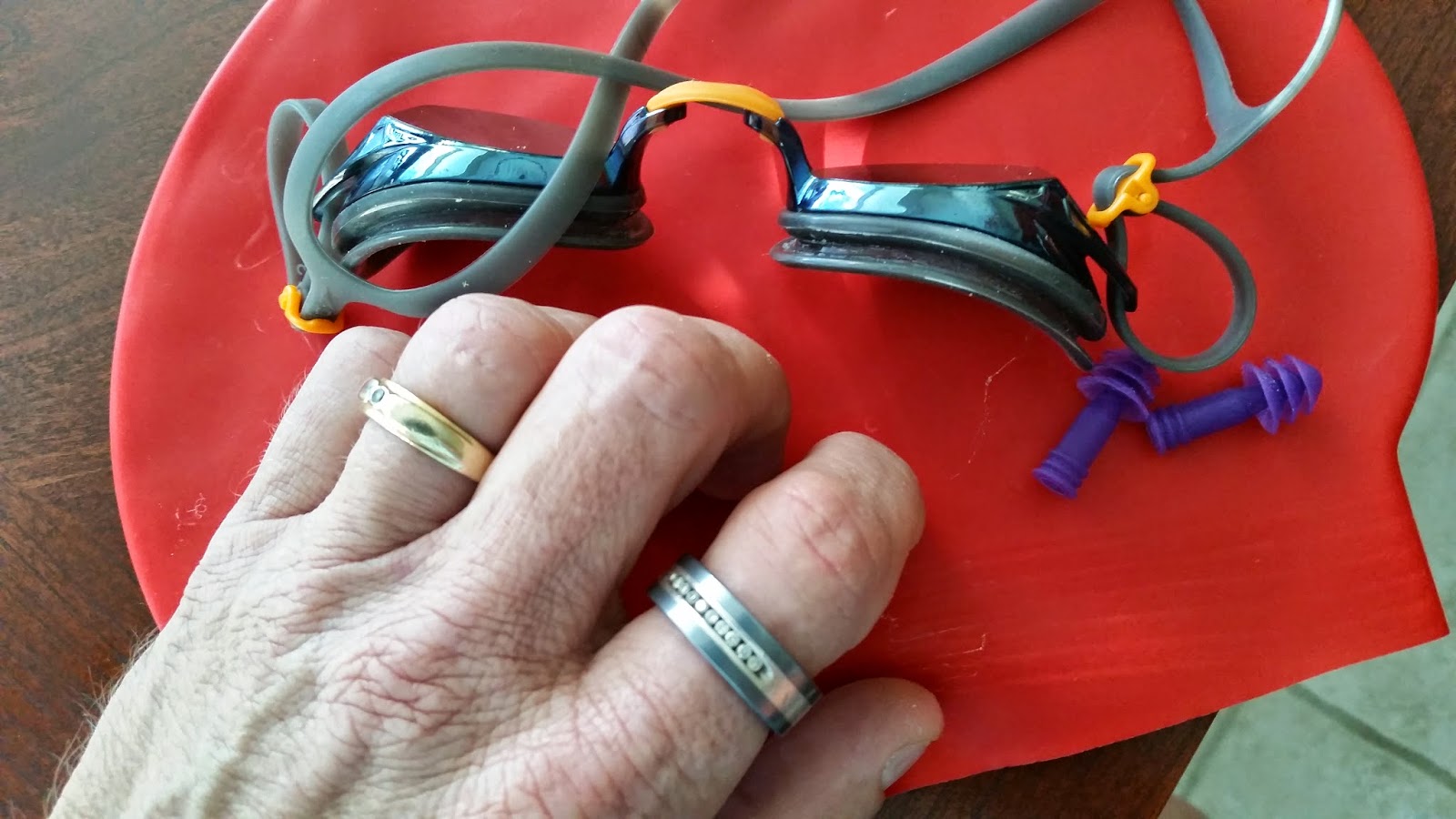The other day when I was training in the pool, I had a funny
and revealing incident. I realized I had
some pretty basic “muscle-memory” getting activated while I swam. Here is what happened:
I recently lost some weight and my rings are fitting my
fingers looser. On this day, I took the
looser of the two rings on my left hand off so it wouldn’t move while I
swam. That had been happening and I found
it a nuisance. I realized that after
every turn and push off the side of the pool, while I was coasting from the push,
I would reach down and push that ring back to the base of my finger – at every turn. I had done it enough, that even when the ring
was off, I was still doing it. I had to
actually retrain myself to stop doing it.
Some would call that muscle-memory. And it is – sort of… Actually most brain researchers agree that
memory resides in the brain – not in muscles.
There is interplay between neurons and muscle cells that caused me to push
on a ring that wasn’t present anymore.
But it wasn’t muscle memory. It
was brain memory.
What does this have to do with Emotional Intelligence –
since that is the reason for this blog?
It demonstrates the affect that emotional habits can have on us. Just like I did with my absent ring, we have similar
types of reactions based on emotional training we have given ourselves-
intentional or on accident. I didn’t
know I was training myself to push on
my ring after each and every lap – but I
was. We do the same with emotion, since
they reside in the part of the brain that creates and maintains memories.
I also was successful in quickly retraining
my brain to stop pushing on the ring. It
only took a few turns to override it. Fortunately,
the same can be done with our bad, or less-than-healthy emotional habits. Unfortunately, since emotional habits are
usually deeply engrained, it can take longer than a few laps in a pool to
retrain your brain.
For now, here are a few quick questions to ask yourself about your emotional habits:
- What emotional habits do you have that you don’t like? Those were likely formed on accident. Knowing what they are helps with the next question.
- What emotional habits would you like to retrain? You can form these on purpose. You can begin on any day or any moment!
- What emotional habits would you like to introduce to your brain? Start doing some “laps” with a new way of thinking and feeling.
Emotional habit-making is an important aspect of healthy
Emotional Intelligence. I cover this at
length is my soon to be released book.
Watch for its release soon!




Comments
Post a Comment